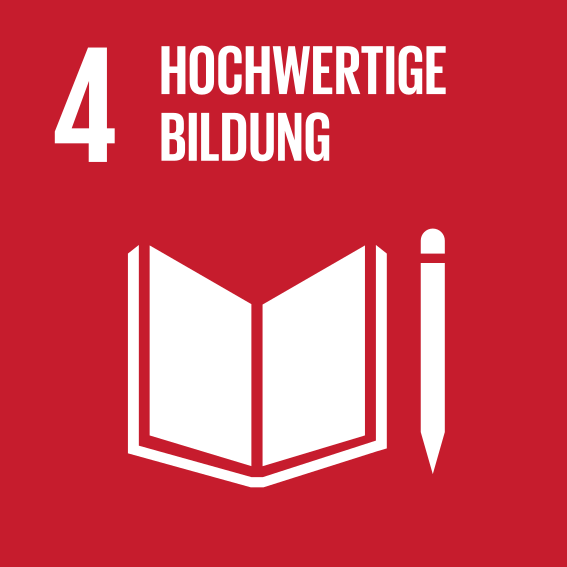|
Fostering prospective teachers' explaining skills during university education – Evaluation of a training module
Findeisen, Stefanie
;
Deutscher, Viola
;
Seifried, Jürgen
|
DOI:
|
https://doi.org/10.1007/s10734-020-00601-7
|
|
URL:
|
https://madoc.bib.uni-mannheim.de/56422
|
|
Weitere URL:
|
https://link.springer.com/article/10.1007/s10734-0...
|
|
URN:
|
urn:nbn:de:bsz:180-madoc-564221
|
|
Dokumenttyp:
|
Zeitschriftenartikel
|
|
Erscheinungsjahr:
|
2021
|
|
Titel einer Zeitschrift oder einer Reihe:
|
Higher Education
|
|
Band/Volume:
|
81
|
|
Heft/Issue:
|
5
|
|
Seitenbereich:
|
1097-1113
|
|
Ort der Veröffentlichung:
|
Dordrecht [u.a.]
|
|
Verlag:
|
Springer Science + Business Media B.V.
|
|
ISSN:
|
0018-1560 , 1573-174X
|
|
Sprache der Veröffentlichung:
|
Englisch
|
|
Einrichtung:
|
Fakultät für Betriebswirtschaftslehre > Wirtschaftspädagogik, Kompetenzentwicklung und Ausbildungsqualität (Deutscher 2016-2024)
Fakultät für Betriebswirtschaftslehre > Wirtschaftspädagogik, Berufliches Lehren und Lernen (Seifried 2012-)
|
|
Bereits vorhandene Lizenz:
|
 Creative Commons Namensnennung 4.0 International (CC BY 4.0) Creative Commons Namensnennung 4.0 International (CC BY 4.0)
|
|
Fachgebiet:
|
370 Erziehung, Schul- und Bildungswesen
|
|
Abstract:
|
Providing instructional explanations is a core component of effective instruction and an important teaching skill. Teaching skills are generally regarded as learnable, and teacher education programs aim to improve teachers’ professional competences. In this study, we analyze to what extent explaining skills can be fostered during teacher education at university by means of a specific training module. We designed a training (university module) for prospective economics teachers at vocational schools (candidates in a Master’s teaching program). By means of videotaped simulated interactions at two measurement points, we analyzed the development of teacher candidates’ explaining skills. Teacher candidates were asked to explain the neoclassical supply and demand model (treatment group: n = 48; control group: n = 30) to an actor playing the role of a school student. The quality of the explanations was operationalized in respect of five aspects of successful explanations, which were derived from a literature review: (1) Content, (2) Student-teacher interaction, (3) Process structure, (4) Representation, and (5) Language. The results show that there was a treatment effect on the development of the Process structure aspect, while Student-teacher interaction appeared to develop “naturally” through experience, regardless of participation in the training. The quality aspects Content, Representation, and Language appeared stable over time. Hence, the findings show that some aspects of explaining skills are learnable even in a short training module. Learning effects are attributable partly to the instructional input received and partly to repeated practice. Both imply the importance of further opportunities to practice instructional explanation in teacher education.
|

 | Dieser Eintrag ist Teil der Universitätsbibliographie. |
 | Das Dokument wird vom Publikationsserver der Universitätsbibliothek Mannheim bereitgestellt. |
 Suche Autoren in Suche Autoren in
Sie haben einen Fehler gefunden? Teilen Sie uns Ihren Korrekturwunsch bitte hier mit: E-Mail
Actions (login required)
 |
Eintrag anzeigen |
|
|
 ORCID: 0000-0001-9203-2023 ; Deutscher, Viola
ORCID: 0000-0001-9203-2023 ; Deutscher, Viola  ORCID: 0000-0002-9714-6465 ; Seifried, Jürgen
ORCID: 0000-0002-9714-6465 ; Seifried, Jürgen  ORCID: 0000-0002-9460-7721
ORCID: 0000-0002-9460-7721



 Creative Commons Namensnennung 4.0 International (CC BY 4.0)
Creative Commons Namensnennung 4.0 International (CC BY 4.0)
 Suche Autoren in
Suche Autoren in